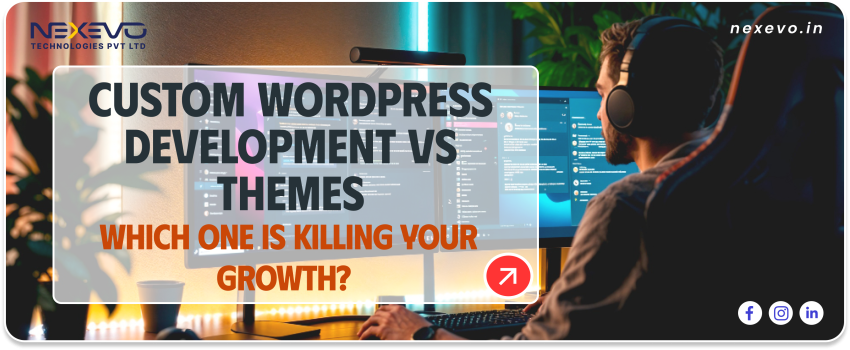Speed Optimization Tips for Joomla Websites

At least 2.7% of all websites on the internet utilize Joomla, its free Joomla Plugins and well-liked open-source content management system (CMS) constructed on an MVC architecture. Corporations, online journals, government programs, small enterprises, and all kinds of websites use it.
In this article, we'll go over several tricks for enhancing Joomla's performance so that it remains working quickly and provides visitors with a positive browsing experience.
How to check your site performance?
Site speed is crucial for search engines, especially Google when deciding which websites to display at the top of the search engine results page (SERP). The well-known website performance assessment tool Google PageSpeed Insights assigns your site a score between 0 and 100 based on how quickly it loads. Your website is doing better if the score is greater. Google PageSpeed Insights can generate tests for both your desktop and mobile website to consider the traffic that comes from mobile devices.
Google PageSpeed Insights can generate tests for both your desktop and mobile website to consider the traffic that comes from mobile devices. The greatest part is that tips for enhancing your site's performance are provided after your score, some of which you may immediately put into practice. In order to determine how quickly your website loads pages, PageSpeed Insights measures it against Google's fundamental web performance indicators. Core web vitals enable a more sophisticated insight of how the user experience is impacted by your page load and how it appears.
Top 10 Speed Optimization Tips for Joomla
Because speed has an impact on everything from traffic, conversions, income, and even SEO rankings, it is crucial to keep your Joomla website functioning quickly. Statistics from a case study Radware conducted on page load times are shown below. To assure repeat visitors, use the advice given below on how to speed up Joomla and keep it working quickly. The most annoying thing may be having to wait for a webpage to load. When it comes to loading a webpage, 2 or 3 seconds may seem like a very short period. It is a major issue. Your search engine ranking, traffic, user experiences, and even your revenue are all significantly impacted. Some of the tips for Jhoomla website are given below:
1. Enable Cache:
When a visitor views a page on a Joomla site, Joomla pulls the necessary material from the database, loads the extensions (modules, plugins, components) needed for that page, and loads template files. This entire process takes time. The caching system in Joomla can fix certain issues.
2. Enable Compression:
The option shrinks the size of your website before it is sent to users, which will speed up page loading. Go to "System Global settings Server Server Settings," locate the option "GZIP Page Compression," and turn it on.
3. Content Delivery Network:
Installing a content delivery network (CDN) with Joomla is a simple approach to speed it up and notice a reduction in load times right away. By doing this, you can make sure that your Joomla assets—including product photos, JavaScript, and CSS—are being served from various places throughout the world to help your visitors get them more quickly.
4. Keeping Site Clean:
You may use a variety of extensions on your website to perform various functions, but be careful when selecting them because some of them could cause your site to load slowly. Additionally, the more extensions you decide to show on the front end, the more HTTP requests they will need to render. For improved performance, make sure your website is as light as possible. It's only arithmetic; if something is heavy, loading will take longer.
5. Image Optimization:
Making your photos more efficient will speed up Joomla and significantly reduce page load times. Sadly, there is no built-in option for picture compression in Joomla. Therefore, you have two options: compress and resize them beforehand using a program like PhotoShop's "Save for Web" function, an internet service, or a Joomla plugin.
6. Optimize Java and CSS:
Concatenating your CSS and JavaScript files will speed up download times and enhance frontend performance since fewer HTTP calls will need to be performed and fewer files will need to be fetched by the browser. But keep in mind that this is no longer required if you are using HTTPS and your server is compatible with HTTP/2.
7. Optimize Template:
The ideal option isn't usually a template or an extension with a decent design. The features, usability, search engine friendliness, sleekness, and optimization, among other things, are additional elements you want to take into account.
8. Optimize Site on Mobile:
As responsive designs are now popular, your website must appear amazing and function properly on the two most popular devices, tablets, and smartphones. If you want to see a list of issues that need to be solved and how well your site performs on mobile, you may utilise Google PageSpeed insights.
9. Right Hosting:
Make sure you get the appropriate hosting from a dependable vendor that can satisfy all of Joomla's hosting requirements: a cap on the number of sites per server, support for the server's hardware, server caching, and Joomla expert assistance.
10. Reduce Redirect Links:
Some scenarios call for the employment of the redirect strategy. However, it will lengthen the loading time of your website. Imagine visiting a store and learning that it has moved to a new location, requiring you to go further. Similar to the redirect strategy, a single redirect typically takes 2-3 seconds longer.
Conclusion
Any website and online company must take page speed into consideration. To observe an improvement in traffic and income, improve your website's performance as soon as possible. You may utilize a variety of configuration settings provided by Joomla to enhance the responsiveness and performance of your website.
The steps listed below demonstrate how to set up these choices to maximize their performance. By changing the page cache plugin, you may turn on browser caching. This informs the browser whether to download a file from the cache or ask the server for it. A good web host may greatly increase the speed of your website. selecting a web host that best fits the needs of your website in terms of web space, monthly traffic, backups, etc.











